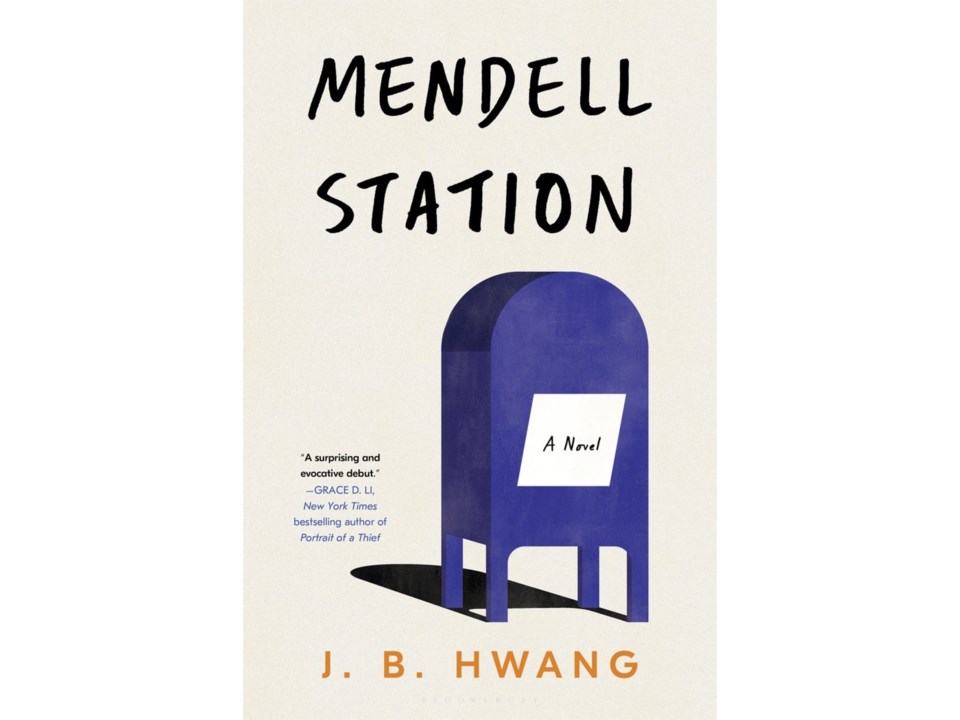“Mendell Station” is Korean American writer J.B. Hwang’s first novel. And it is all about death — its horror, finality and mystery, and, most of all, how those who knew and loved that person must cope.
Miriam, the main character, who is a Korean American postal worker living in San Francisco, learns that her best friend, Esther, was found dead, having fallen two stories onto the train tracks at Van Ness station.
The mystery of how Esther died is never solved in the book, although we learn she had been intoxicated and wobbly on her feet when last seen at a bar.
The narrative focuses more on Miriam’s initial confusion and the painful emotional attempt at mourning and eventual acceptance.
“The love I had for Esther distended and became a fluid that filled my skull… My skeleton felt ripped out of my body, and I crumpled to the floor. The sound of many waters, weighted clouds in the sky, thin black grooves between the wooden floorboards teeming with darkness.”
Like many great novels, the specifics are clear — the Asian American experience, which is quite different from the white or Black American experience, in many ways, or the details of working at the post office, the menial, never-ending repetition — as fitting the expression “going postal” — but also the gentle kindness of the regular folks who are her co-workers.
The universal human story of losing a loved one comes alive amid the backdrop of these specifics, like many great novels.
It is very moving.
The experience, happening amid the confusion that came in the early days of the coronavirus pandemic in 2020, is so unsettling Miriam’s faith in God is shattered.
She starts writing letters to Esther that never get delivered to cope with her grief.
“Esther, I wondered why I didn’t want to kill myself after you died, when I couldn’t stop thinking about it after my father’s death. Would I be recognizable to you now, without my faith, without you? I don’t like who I am without you,” goes one of her letters.
This is a book that speaks to women, especially Asian American women, and those who have just lost a loved one. And this writer happens to fit all those categories.
Still, it’s a good book for anyone.
Hwang is comfortable switching from a language that is a myopic closeup in its descriptiveness to free-wheeling poetic grandeur on the same page, entering the mind and soul of the woman who is our heroine.
It matters more than ever that she is an Asian American in a storytelling universe dominated by white people. Yet it matters not at all.
Hwang’s writing often doesn’t bother with stage-setting, or scene or character descriptions. Readers feel as though they have simply slipped into Miriam’s skin.
We know through our own skin and bones, rather than read and learn, the sad memories of our upbringing, the routine drudgery of work, the loneliness and the joy of finding a friend, and the unbearable grief of losing one.
The effect is mesmerizing, and strangely comforting.
We affirm through the journey that Hwang takes us on that lesson we knew all along: We must live. Those who have gone want that and expect that of us.
___
AP book reviews: https://apnews.com/hub/book-reviews
Yuri Kageyama, The Associated Press



